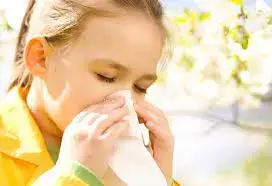- Home
- Medical news & Guidelines
- Anesthesiology
- Cardiology and CTVS
- Critical Care
- Dentistry
- Dermatology
- Diabetes and Endocrinology
- ENT
- Gastroenterology
- Medicine
- Nephrology
- Neurology
- Obstretics-Gynaecology
- Oncology
- Ophthalmology
- Orthopaedics
- Pediatrics-Neonatology
- Psychiatry
- Pulmonology
- Radiology
- Surgery
- Urology
- Laboratory Medicine
- Diet
- Nursing
- Paramedical
- Physiotherapy
- Health news
- Fact Check
- Bone Health Fact Check
- Brain Health Fact Check
- Cancer Related Fact Check
- Child Care Fact Check
- Dental and oral health fact check
- Diabetes and metabolic health fact check
- Diet and Nutrition Fact Check
- Eye and ENT Care Fact Check
- Fitness fact check
- Gut health fact check
- Heart health fact check
- Kidney health fact check
- Medical education fact check
- Men's health fact check
- Respiratory fact check
- Skin and hair care fact check
- Vaccine and Immunization fact check
- Women's health fact check
- AYUSH
- State News
- Andaman and Nicobar Islands
- Andhra Pradesh
- Arunachal Pradesh
- Assam
- Bihar
- Chandigarh
- Chattisgarh
- Dadra and Nagar Haveli
- Daman and Diu
- Delhi
- Goa
- Gujarat
- Haryana
- Himachal Pradesh
- Jammu & Kashmir
- Jharkhand
- Karnataka
- Kerala
- Ladakh
- Lakshadweep
- Madhya Pradesh
- Maharashtra
- Manipur
- Meghalaya
- Mizoram
- Nagaland
- Odisha
- Puducherry
- Punjab
- Rajasthan
- Sikkim
- Tamil Nadu
- Telangana
- Tripura
- Uttar Pradesh
- Uttrakhand
- West Bengal
- Medical Education
- Industry
Babies with Low weight with maternal history have increased risk of Allergic rhinitis

Children with early-low and catch-up or below-average BMI growth, along with a mother with allergic rhinitis, have an increased risk for allergic rhinitis by age 18 years, according to a latest study published in Pediatric Allergy and Immunology.
Early life body mass index (BMI) trajectories influence the risk of asthma at 18 years of age. However, it is unclear if these are also associated with other allergic diseases. They investigated the associations between BMI trajectories and subsequent allergic rhinitis, eczema and food sensitisation/allergies.
Parent-reported anthropometric data were collected 18 times in the first two years of life from a cohort of 620 participants in a high-risk cohort. Group-based trajectory modelling was applied to develop BMI trajectories. Associations between trajectories and allergic rhinitis, eczema and food sensitisation at 6, 12 and 18 years of age were assessed using logistic regression models. Potential effect modifications by parental allergic disease, sex and allocated infant formula were assessed.
Results:
They identified five BMI trajectories: average, below average, persistently low, early low and catch up, and persistently high. None showed an association with allergic rhinitis. In participants with maternal allergic rhinitis, 'early-low and catch-up' (OR = 2.83;95%CI 1.34-5.96, Pint = 0.05) and 'below average' trajectories (OR = 2.39; 1.18-7.23, Pint = 0.02) were associated with allergic rhinitis at 18 years of age compared with the average trajectory. No associations were observed with eczema or food sensitisation.
Thus, infants with early-low and catch-up, or below average BMI growth, were at increased risk of allergic rhinitis at 18 years if they had a mother with allergic rhinitis. These results require replication, but suggest that interactions between poor intrauterine growth, failure to thrive and maternal allergies may influence the risk of allergic rhinitis.
Reference:
Associations between Body Mass Index Trajectories in the first two years of life and Allergic Rhinitis, Eczema and Food Allergy outcomes up to early adulthood by Chia-Lun Chang, et al. published in the Pediatric Allergy and Immunology.
https://onlinelibrary.wiley.com/doi/10.1111/pai.13765
Dr. Shravani Dali has completed her BDS from Pravara institute of medical sciences, loni. Following which she extensively worked in the healthcare sector for 2+ years. She has been actively involved in writing blogs in field of health and wellness. Currently she is pursuing her Masters of public health-health administration from Tata institute of social sciences. She can be contacted at editorial@medicaldialogues.in.
Dr Kamal Kant Kohli-MBBS, DTCD- a chest specialist with more than 30 years of practice and a flair for writing clinical articles, Dr Kamal Kant Kohli joined Medical Dialogues as a Chief Editor of Medical News. Besides writing articles, as an editor, he proofreads and verifies all the medical content published on Medical Dialogues including those coming from journals, studies,medical conferences,guidelines etc. Email: drkohli@medicaldialogues.in. Contact no. 011-43720751


